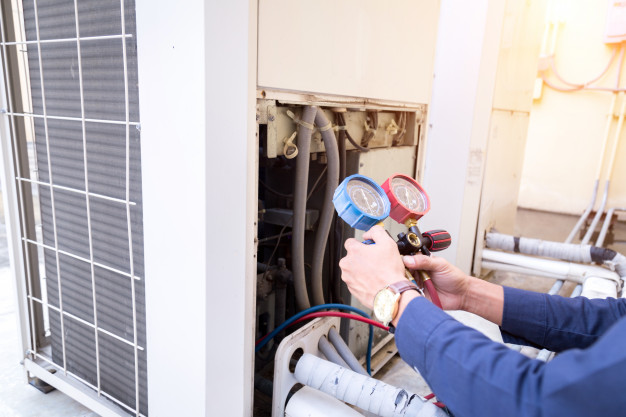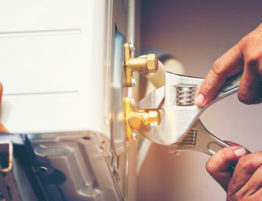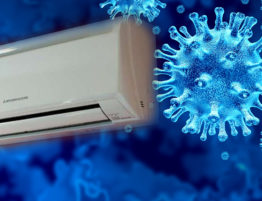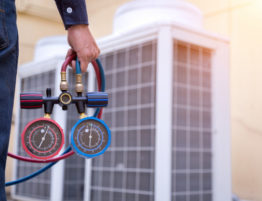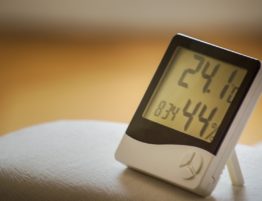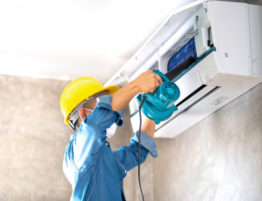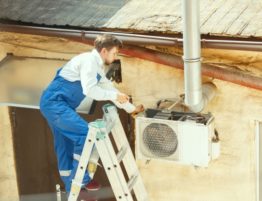HVAC, also known as Heating, Ventilating, and Air Conditioning units are ideal temperature system units to keep a house cool and warm based on different seasons and weather conditions.
But, there are always certain factors that affect the HVAC unit, especially during the summer monsoon. Weather conditions like a hailstorm, lightning, extreme heat, rain, and humidity can alter its functions.
However, these weather conditions are beyond our control and are bound to occur. But, what is under our control is following some expert tips to keep the HVAC working properly. To get more information on it, read below!
How Does Summer Monsoon Affect an HVAC Unit?
The summer monsoon is a seasonal phenomenon in the tropical region. Thus, the monsoon season consists of flooding, humidity, dampness, and dust storms. All of these weather conditions affect the HVAC Unit’s functionality. Moreover, these factors can alter the cooling unit, compressor, air ducts, refrigerants, condenser, evaporator, and other areas.
Dust particles from storms can enter into the air ducts and remain trapped in there. This reduces the cooling system and makes your room polluted by unseen particles. Similarly, dampness, physical abrasion affects the heating and cooling units as well.
How to Keep Your HVAC Intact in Summer Monsoon?
According to many professional experts, if you follow these tips, your HVAC will stay strong and intact through summer monsoon:
1. Get Maintenance Often
Summer monsoon can dampen the units, block the air ducts, and spoil other units. It is in your best interest to get HVAC maintenance often. If you have previous experience, then you can try cleaning out the condenser and evaporator. Also, pay attention to refrigerants.
Moreover, if there are any other technical difficulties, a professional maintenance service will wipe out all the underlying issues.
2. Change Air Filters
As dust storms are major carriers of dust and dirt, they easily accumulate and get trapped onto the filters, blocking the compressor and airflow. Thus, it is important to clean the air filters as well as the outdoor unit since outdoor wind is also trapped inside the condenser.
Try cleaning them thoroughly once a month. You can also take additional help from experts to do it. Here’s one tip, keep the plants and any other furniture as far as 2 feet away from the outdoor unit.
3. Check Wiring
There are many times when people have reported their HVAC system not being able to turn on. The major reason behind this is internal damage or bad wiring. Sometimes a shortage of power sources can also affect it. So, check if the cables are loosely plugged in, take a brief look at the circuit breaker. Also, change your batteries from the thermostat.
4. Avoid HVAC During Thunderstorm
It is highly advisable to avoid using the HVAC unit, especially if you’ve placed the unit in such a place that is exposable. One lightning strike can cause severe damage to the unit, damage the compressor permanently, and cause a power surge. And interestingly, power surges can also damage other components of the HVAC unit. If your AC unit is hit by a lightning strike, contact the service providers to fix the damage.
5. Control Humidity
Humidity, in other words, is moisture, and summer monsoon is all about dampness and warm surroundings. However, an HVAC system is built in such a way that it extracts the moisture out from the air. But, there are days when the weather is extra humid and that can take a toll on the unit.
Thus, too much-overworking damages the unit and compressor. To avoid this hassle, check the unit before the summer arrives so that it can work fine during the seasons. Also, install insulators in your house so that the walls become thick and the air becomes cool when you turn the unit on.
Now, weather conditions are inevitable but precautionary measures to keep the HVAC working smoothly, can save you a fortune, time, and effort!
